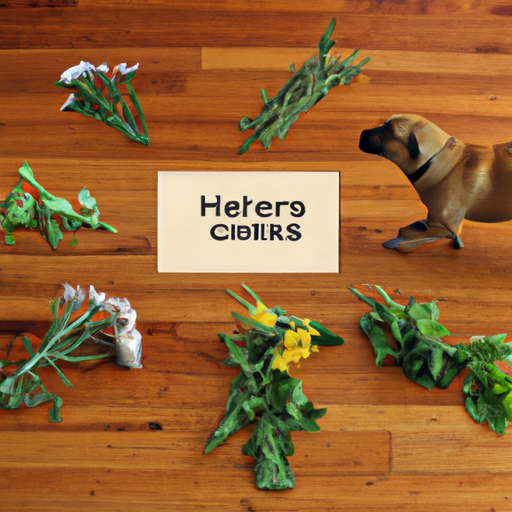“`markdown
What Herbs Are Toxic to Dogs?
As a caregiver, it’s your responsibility to ensure your furry friend is safe, healthy, and happy. You might be surprised to learn that certain herbs, while beneficial to humans, can be harmful or even lethal to your beloved pet. This article will discuss five common herbs that are toxic to dogs.
1. Garlic
Garlic might add a wonderful flavor to your meals, but it’s harmful to your dog. When ingested in large amounts, garlic can cause damage to your dog’s red blood cells, leading to anemia. Symptoms of garlic poisoning can include:
- Vomiting
- Diarrhea
- Loss of appetite
- Abdominal pain
- Depression
| Symptoms | Onset Time |
|---|---|
| Vomiting | 1-2 hours |
| Diarrhea | 2-4 hours |
| Loss of appetite | 24-48 hours |
| Abdominal pain | 48-72 hours |
| Depression | Depends on severity of ingestion |
2. Onions
Just like garlic, onions are a member of the Allium family and are toxic to dogs. They contain compounds that can cause a breakdown of red blood cells, leading to anemia.
3. Chives
Chives, another member of the Allium family, can cause similar problems for your dog. Even a small amount can result in poisoning.
4. Oregano
Oregano, a common herb used in many cuisines, contains phenolic compounds that can be harmful to your dog if ingested in large amounts.
5. Parsley
While small amounts of curly parsley are generally safe, the spring parsley variety can cause photosensitisation and ocular toxicity.
FAQ
Q: Are all herbs harmful to dogs?
A: No, not all herbs are harmful to dogs. Some, like basil and dill, are safe in moderate amounts.
Q: What should I do if my dog ingests a harmful herb?
A: If your dog ingests a harmful herb, contact your vet immediately. They will provide the necessary treatment.
Q: How can I prevent my dog from ingesting harmful herbs?
A: Always keep harmful herbs out of your dog’s reach. Avoid using these herbs in homemade dog food or treats.
Q: Can my dog have a reaction to herbs even in small amounts?
A: Yes, some dogs can have a reaction even to small amounts of certain herbs. Always consult your vet before introducing a new food or herb to your dog’s diet.
As a caregiver, you want the best for your pet. Be aware of the herbs you use in your home and take necessary precautions to keep your dog safe.
“`



